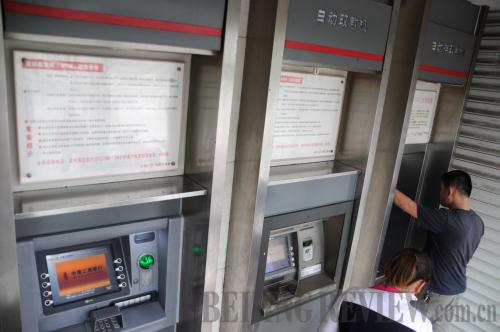Has China's banking sector entered a crunch time?
|
 |
|
A customer at the Industrial and Commercial Bank of China uses an ATM in Binzhou, Shandong province. The bank's cash machines were allegedly down on June 22 for an hour following news of the credit crunch. [Photo / CFP] |
To clamp down on simmering risks, the central bank issued a regulation on June 17, warning commercial banks to stop excess credit and daring capital spending.
Commercial banks in China usually see the central bank as a "caring mother." Whenever there is a liquidity crunch, the "mom" would lower the reserve requirement ratio to inject liquidity.
But to the surprise of all banks, the central bank didn't come to their rescue this time, which underscores the new leadership's goal to reform the country's economy into a more sustainable and market-based one, as rampant credit growth is likely to distort economic reality.
Wang Yong, an analyst from the CITIC Securities, said that the central bank wants to punish commercial banks this time and force banks to solve their own problems. "This can give them more discipline and urge them to issue rational loans in the future. Although this may cause short-term market panic, it's a price worth paying," said Wang.
According to the accounting firm PricewaterhouseCoopers, bad loans and overdue loans in China's 10 listed banks reached 376.2 billion ($61.2 billion) and 486.5 billion yuan ($79.2 billion), respectively, at the end of 2012.
On June 25, to ease market fear, the central bank issued a statement on its website, reaffirming its drive to get banks to control their lending. But the central bank also said that it would provide cash to institutions that support the real economy.
The PBOC said it will keep the money markets stable with a combination of tools, including open market operations, re-lending, rediscounting, short-term liquidity operations and standard lending facilities.
"For financial institutions that extend loans to the real economy and develop with a prudent lending pace, the central bank will provide liquidity support if they temporarily lack capital."



















